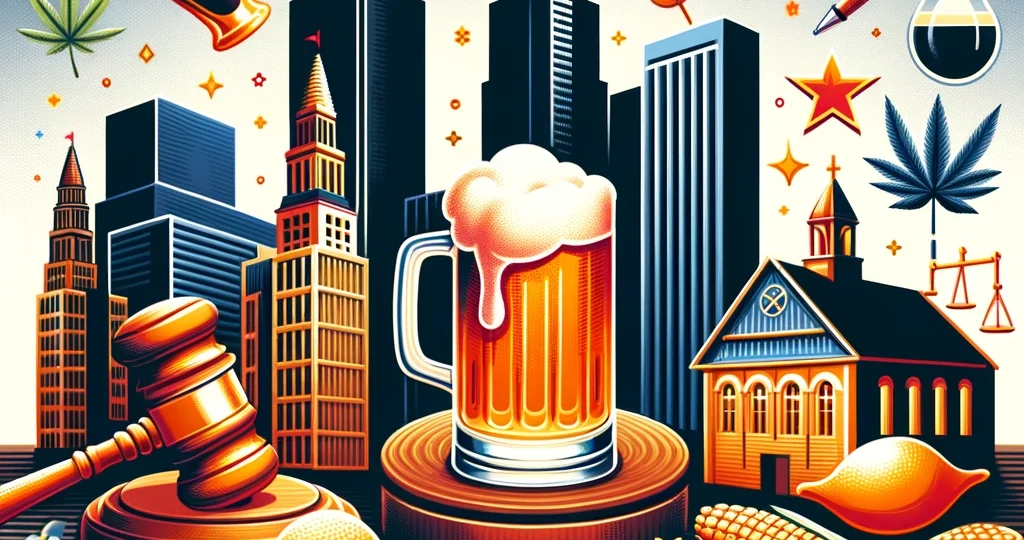
In the heart of Los Angeles, bars and breweries form an integral part of the city’s social fabric, offering locales for relaxation and community gathering. However, to ensure these establishments not only survive but thrive, adherence to the city’s complex food and alcohol laws is essential. Legal compliance for Los Angeles bars and breweries can be a complicated concept and this article attempts to provide an overview of some of the necessary steps for legal compliance.
Navigating Alcohol Licensing in Los Angeles:
- Securing an ABC License: A cornerstone of operating any establishment serving alcohol in Los Angeles is obtaining the appropriate Alcohol Beverage Control (ABC) license. The type of license required varies, catering to bars, breweries, restaurants, and distributors, with each category having its own set of specifications and fees.
- Local Permitting Requirements: Additional permits may be needed for specific operational aspects such as outdoor seating, live entertainment, or hosting special events, which are governed by city or county regulations.
- License Renewal and Regulatory Compliance: Keeping meticulous records and timely renewing ABC licenses are crucial practices. Compliance with all ABC regulations is non-negotiable to prevent fines or, worse, suspension of the license.
Streamlining Distribution and Sales:
- Understanding California Craft Beer Laws: For breweries, California’s laws allow self-distribution within the state to a certain extent. It’s imperative to understand these laws thoroughly to ensure compliance.
- Engaging with Third-Party Distributors: When dealing with distributors, negotiate contracts carefully to secure fair terms for pricing, marketing, and legal rights.
- Direct-to-Consumer Sales: Breweries have the privilege of selling directly to consumers, whether on-site or online. Familiarizing oneself with the nuances of shipping laws and age verification is key to lawful operation.
Promoting Responsible Service and Reducing Liability:
- Staff Training: Implementing comprehensive training programs for staff on responsible service, including the proper way to check IDs and handle intoxicated patrons, is mandatory.
- Managing Service Refusal: Establish clear protocols for refusing service to prevent over-serving and potential liabilities associated with serving intoxicated customers.
- Understanding Dramshop Laws: Awareness of California’s dramshop laws is vital, as these can implicate establishments in legal issues arising from the actions of intoxicated patrons.
Additional Considerations: Legal Compliance for Los Angeles Bars and Breweries:
- Food Safety and Sanitation: For those serving food, maintaining high standards of cleanliness and food safety is as critical as alcohol regulation compliance.
- Adhering to Noise Ordinances: Compliance with local noise ordinances through measures like soundproofing or operational adjustments ensures good neighborhood relations.
- Mindful Marketing: Ensure all marketing efforts, especially those related to alcohol, comply with ABC guidelines and do not target underage audiences.
Seeking Expert Guidance:
Navigating the food law in Los Angeles landscape can be complex. Leveraging resources such as the California Department of Alcoholic Beverage Control and consulting with specialized food law attorneys can provide clarity and direction, helping bars and breweries mitigate risks and navigate legal intricacies.
